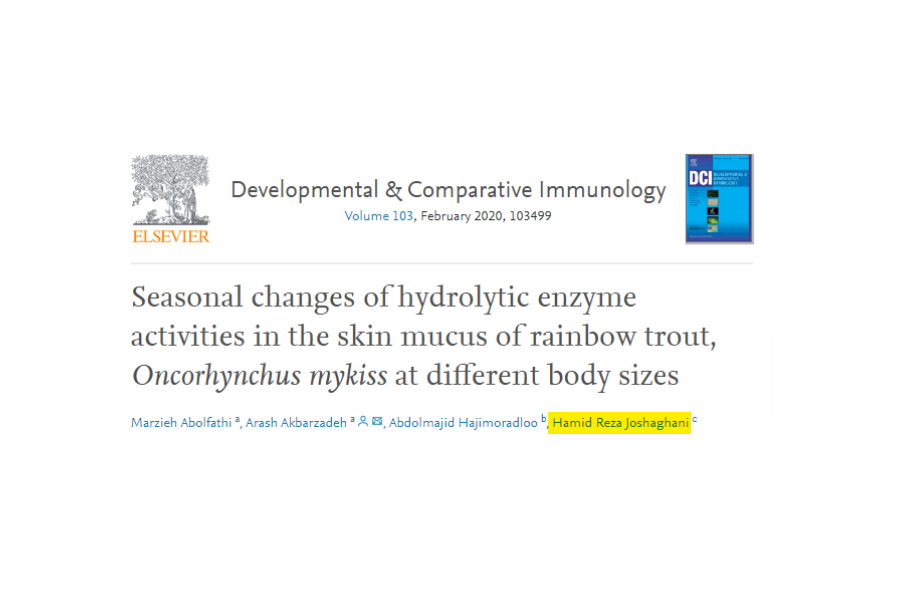تغییرات فصلی فعالیت آنزم های هیدرولیتیک موکوس پوست ماهی های قزل آلای رنگین کمان در سایزهای مختلف
Abstract
The innate immune factors in the skin mucus of fish are affected by the ecological and physiological conditions such as developmental stage and seasonal cycle. The aim of this study was to investigate the seasonal changes in soluble protein and the hydrolytic enzyme activities of the skin mucus of rainbow trout including lysozyme, alkaline phosphatase (ALP) and proteases at different body sizes. Skin mucus samples were collected over three consecutive season periods including winter, spring and late summer. In each season, sampling was performed separately from three different weight groups including 2–۲۰ g (W1), 100–۲۰۰ g (W2) and 400–۶۰۰ g (W3) fish. Our results showed a significant increase of soluble protein in all three weight groups from winter to spring when water temperature elevated from 9 °C to 14 °C. Moreover lysozyme activity was remarkably elevated in W1 fish from winter to late summer. In all three seasons, the activity of lysozyme was significantly decreased along with increasing the fish size. Contrary to lysozyme, the activity of proteases and ALP showed a decreasing trend from winter to late summer. A significant positive correlation was found between the proteases and ALP activity, proposing that both proteases and ALP might have important synergic roles in the mucosal innate immune function of rainbow trout. Moreover, using reverse transcription PCR (RT-PCR) analysis of some proteases genes including cathepsin-L and cathepsin-D, we demonstrated that the proteases are transcribed and likely synthesized in epidermal mucus cells of rainbow trout. The present study confirmed seasonal changes of hydrolytic enzyme activities in the skin mucus of rainbow trout across all three weight groups, with the highest variation in juvenile fish.
View Full Text: https://doi.org/10.1016/j.dci.2019.103499




پاسخ دهید
میخواهید به بحث بپیوندید؟مشارکت رایگان.